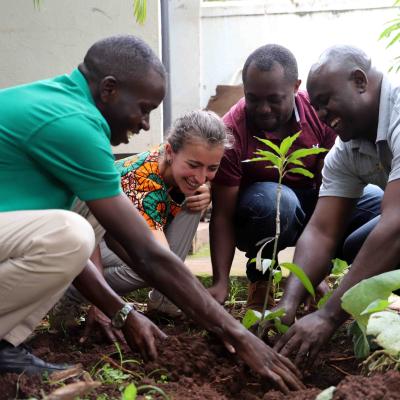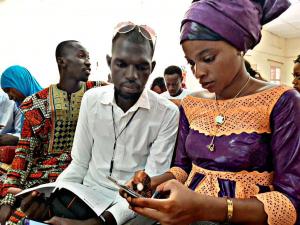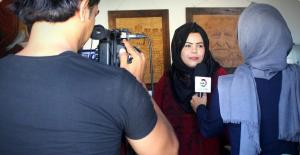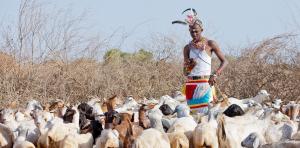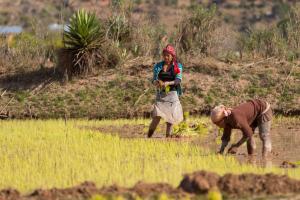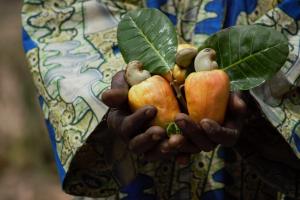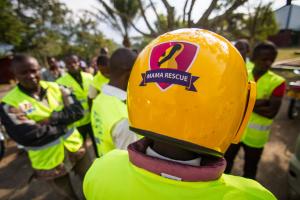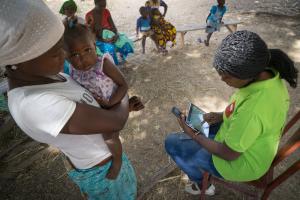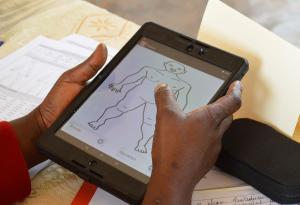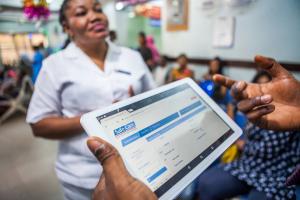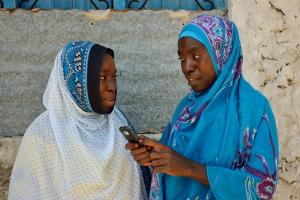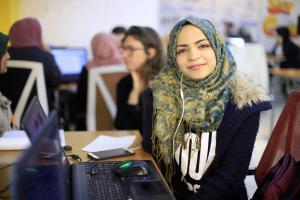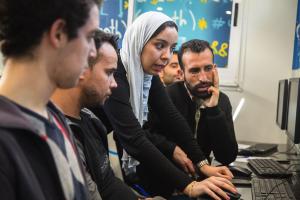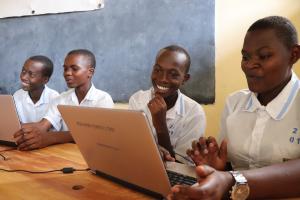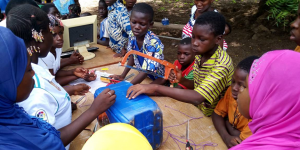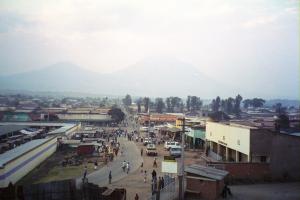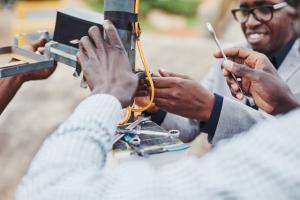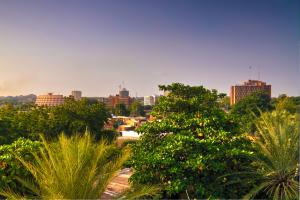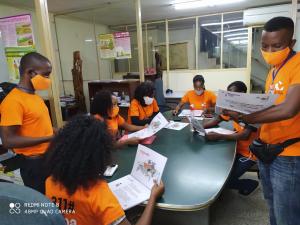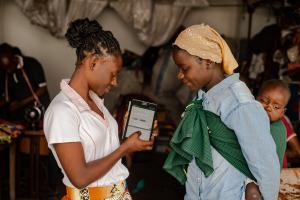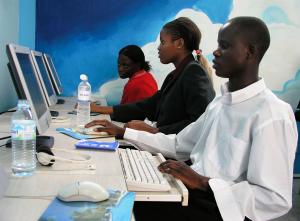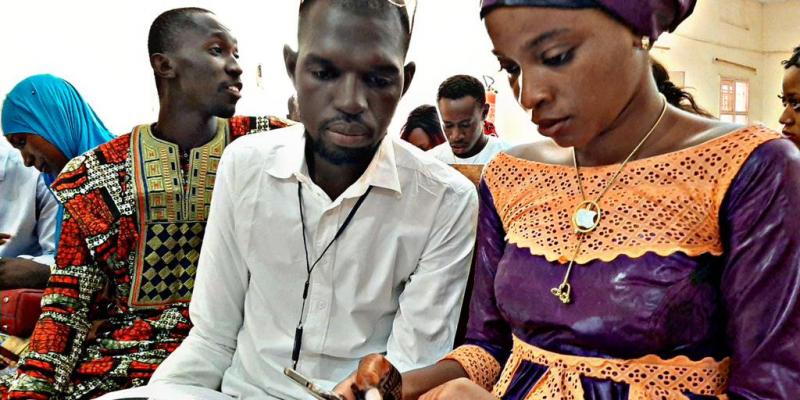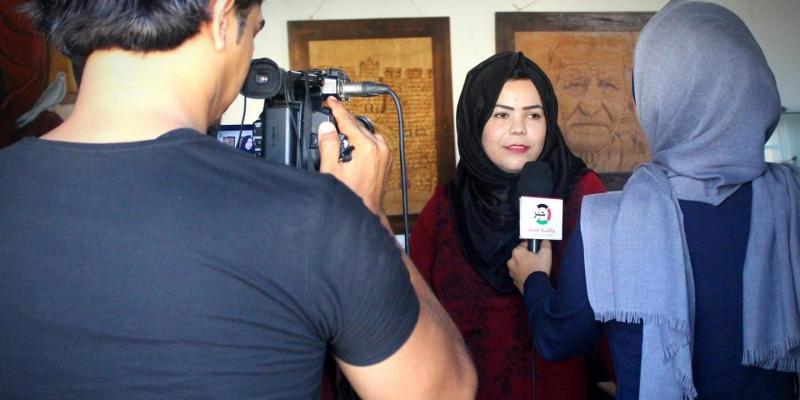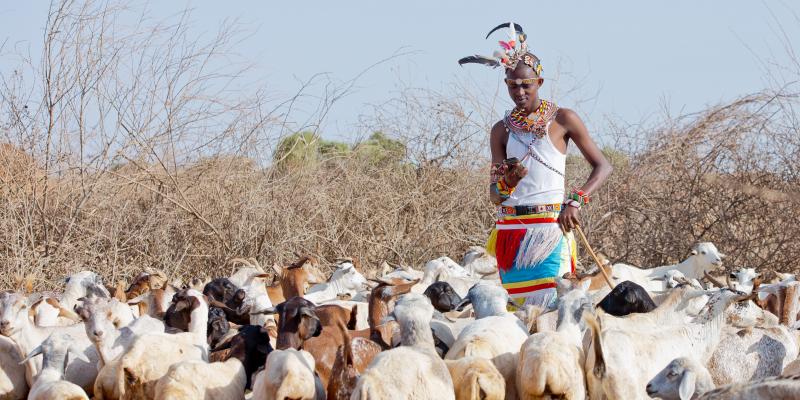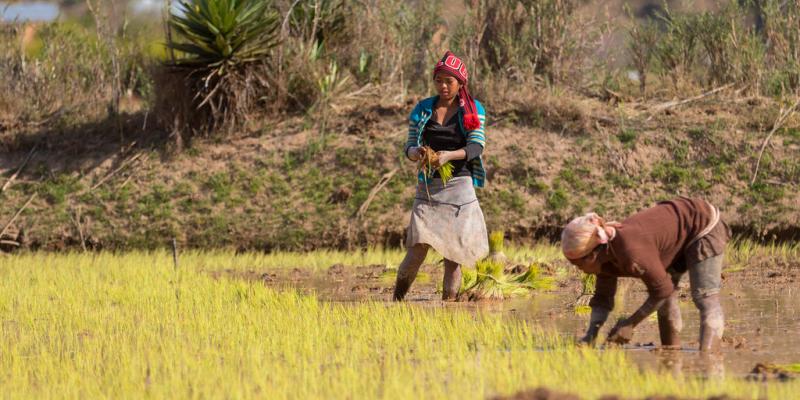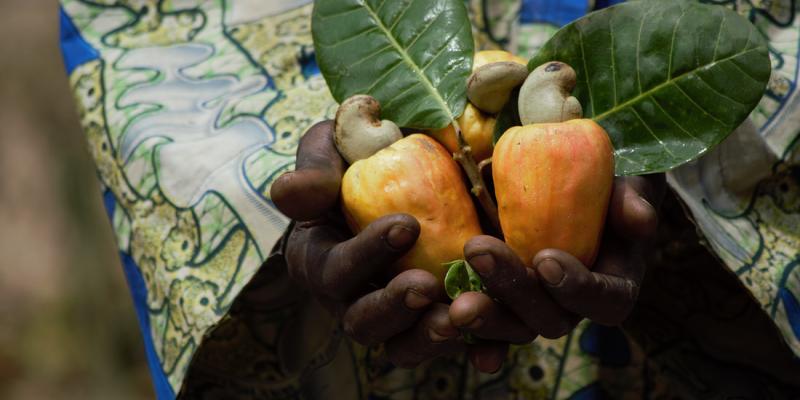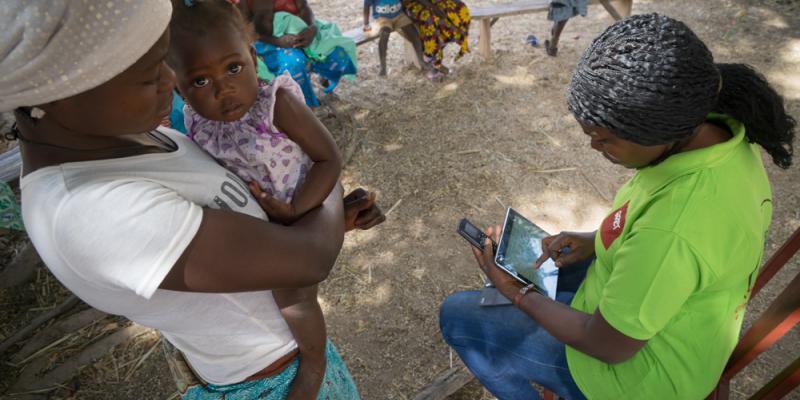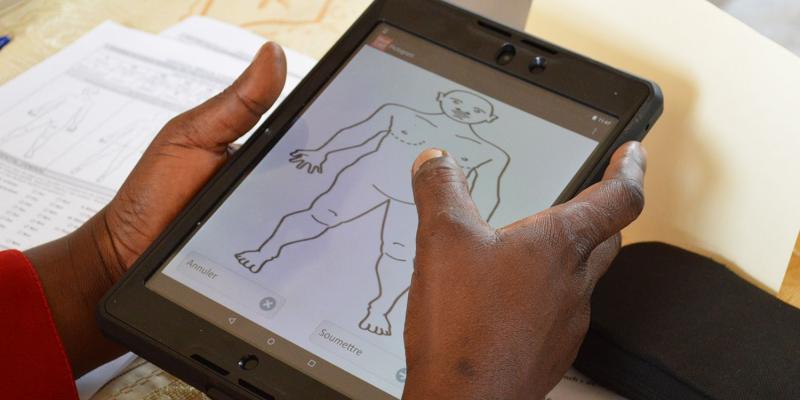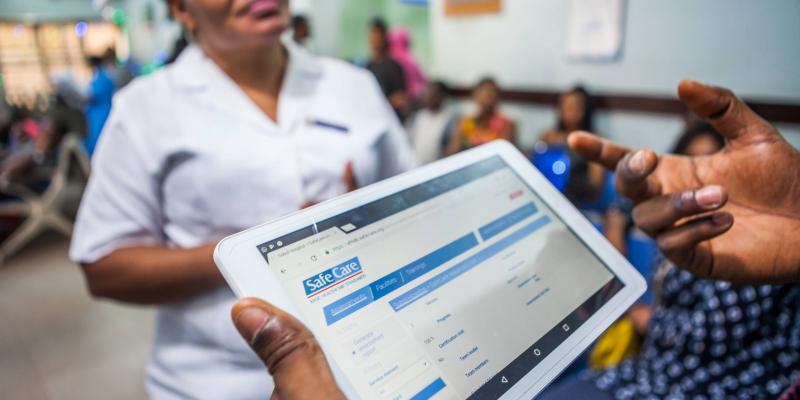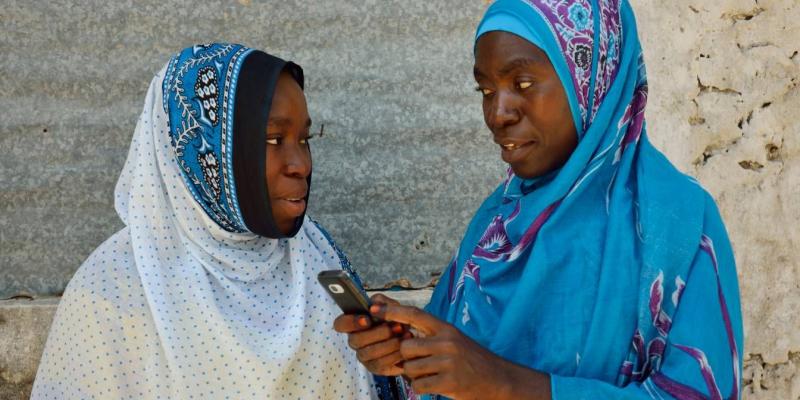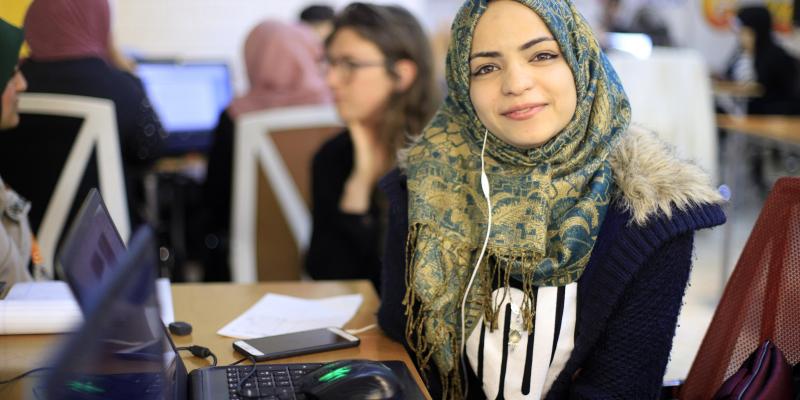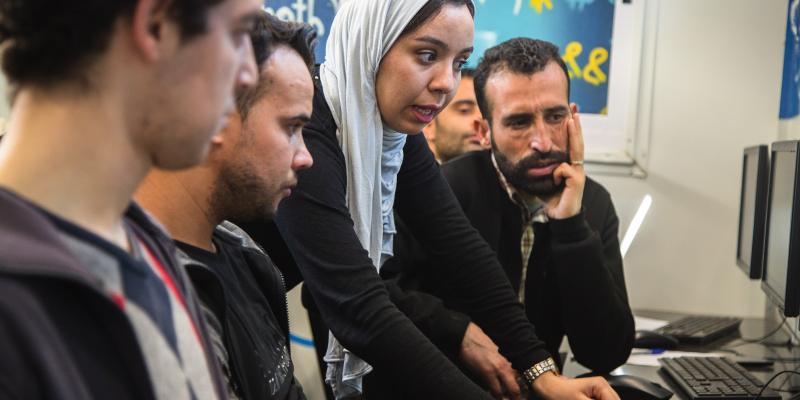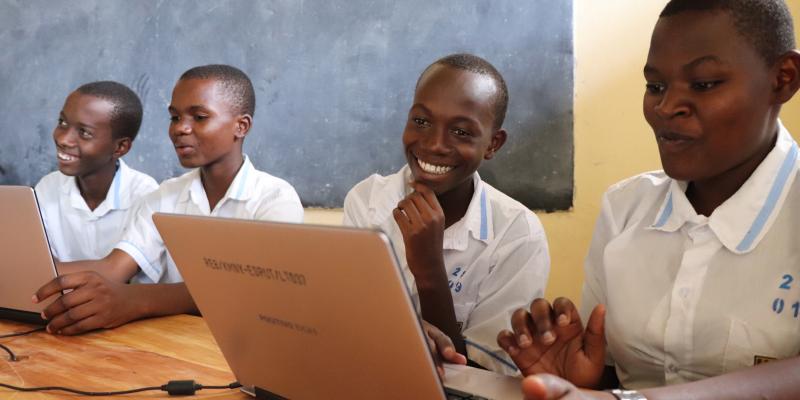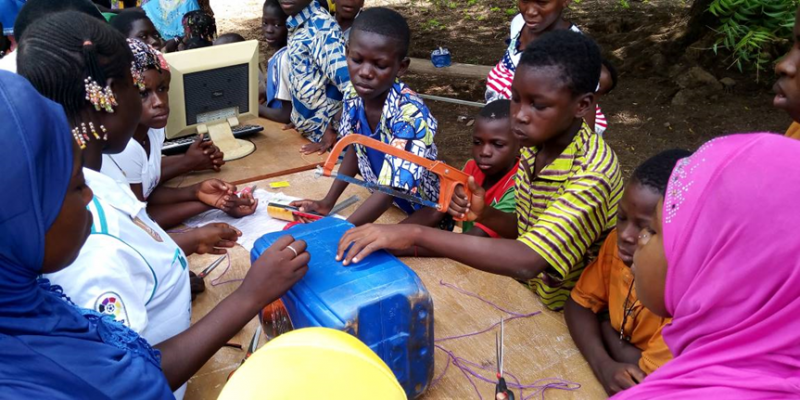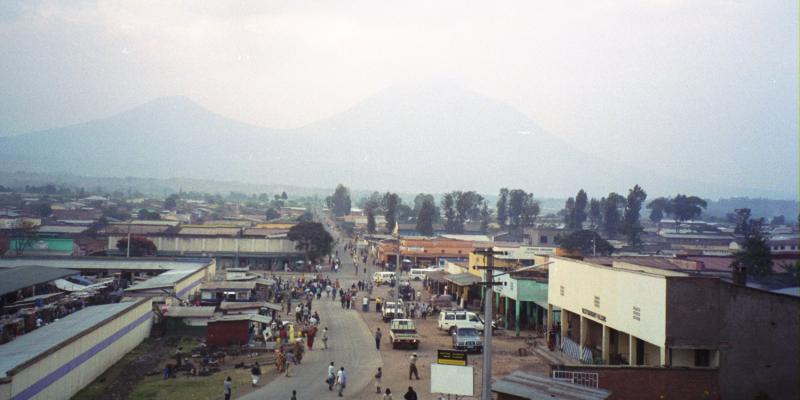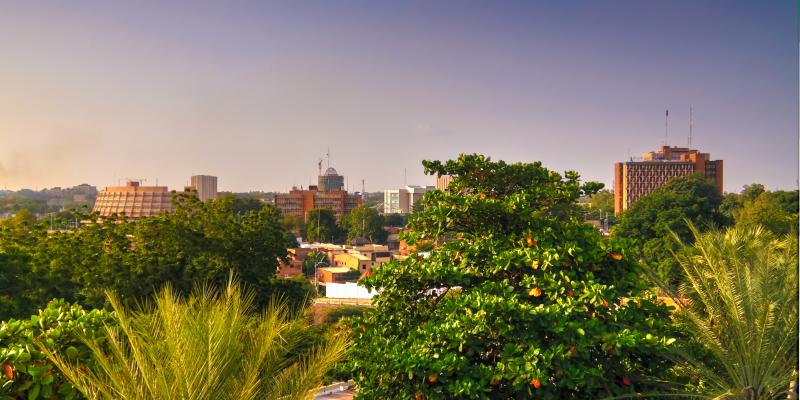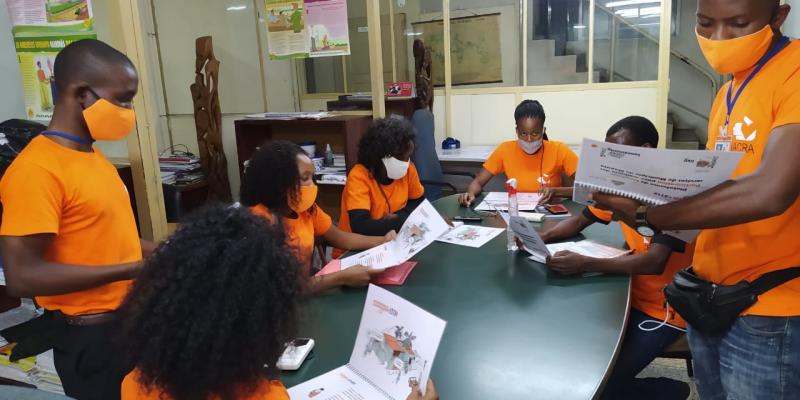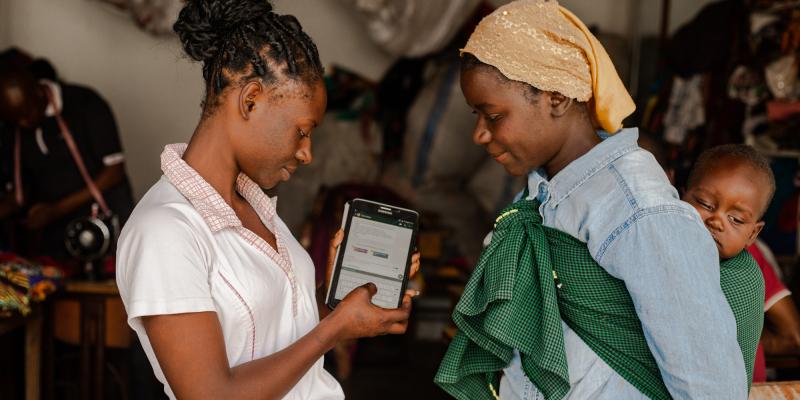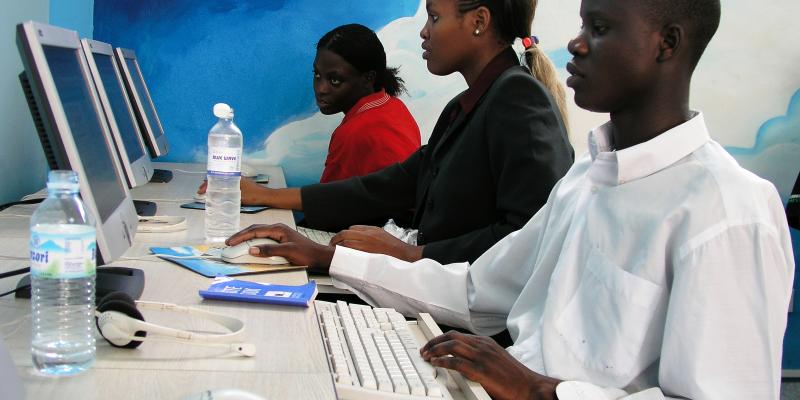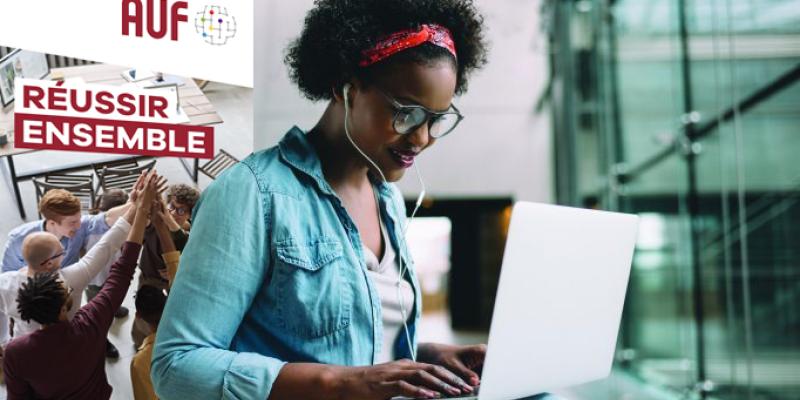Inclusion of women and youth in planning and local governance through ICT
Mali
Women and young people’s rights, inclusion and empowerment
Mali is faced with a fragile national context that undermines the functioning of the Rule of Law and makes it difficult to exercise active citizenship.
The social fabric, intra-community and inter-generational relations are weakening and the relations with representatives of local authorities are deteriorating.
Furthermore, women are often excluded from local decision-making processes, having a negative impact on the communities’ sustainable human development (e.g. increasing socio-economic disparities and a feminisation of poverty).
Finally, elected women in the Kayes region struggle to assert women’s rights and promote equal opportunities in local planning and governance.
Ta’beer
Palestine
Women and young people’s rights, inclusion and empowerment
Although youth widely use the Internet and social media in OPT, their digital rights and spaces are jeopardized and are becoming less inclusive and safe. This is manifested in the increase of cybercrime rates evidenced in a study published in 2018 which reported that one out of every three Palestinian women were subjected to violence on social media. The lack of awareness and capacity of youth on safe access and use of the Internet coupled with the legal environment that violates their digital rights and their right to freedom of expression necessitates immediate action to ensure inclusive digital spaces for young Palestinian men and women.
The project aimed to mobilise safe, accessible and inclusive digital rights and space in Palestine, by promoting (i) Women’s political participation and leadership, (ii) Women’s Rights, and (iii) by preventing Gender-based violence.
LEWUTI
Uganda
Women and young people’s rights, inclusion and empowerment
Due to several contributory factors, most Ugandans – especially women, have very limited access to legal services, particularly in rural areas. For instance, most local leaders (cultural and political) have a wrong belief that women cannot own land although the law says otherwise. As a result, their rights are infringed upon, they have limited recourse for injustice and therefore do not enjoy the full potential of rights and duties they are entitled to.
The project mobilizes digital solutions to overcome physical and financial barriers to reach legal support while addressing the structural gender inequalities that prevents women from accessing justice
Afriscout
Tanzania
Climate Smart Agriculture
Traditional livestock herders, known as pastoralists, serve as the primary custodians of Tanzania’s grasslands - one of the most important ecosystems and a critical resource for addressing climate change. However changing climatic conditions, coupled with the limited field of vision when using traditional methods of finding pasture, has severely limited the predictive capacity of pastoralists in effectively managing herd movement. As a result, a typical household loses over a quarter of their livestock every year and rangelands continue to deteriorate.
SIT SAHEL LAFIA
Burkina Faso
,Mali
,Niger
Climate Smart Agriculture
Burkina Faso, Mali and Niger are three Sahelian pastoralist countries, where 86% of the total area (2,781,205 km²) is semi-arid to arid. These countries have a total of 138,592,224 head of cattle. This shows that livestock farming is at the heart of the livelihood dynamics of the most vulnerable.
However, livestock farmers regularly face the effects of climate change: droughts, floods and epizootics. These shocks are compounded by conflict, making it difficult for livestock owners to move around and keep their livestock. This makes information a valuable decision-making tool for them. To meet this need, the project offers the ‘SIT’ (Système d’Information aux Transhumants) to livestock farmers.
IMAP4CSA
Tanzania
Climate Smart Agriculture
Smallholder rice farmers in Tanzania are confronted with many difficulties, such as:
1)Climate change challenges like floods and drought
2)Inefficient use of water
3)Limited knowledge of Good Agronomic practices
4)Farming remains subsistence, as smallholder farmers lack access to capital from financial institution to be able to adopt improved farming technologies, buy improved seeds, fertilizer, agrochemicals and cover cost of their farming operations such as plowing, transplanting, weeding, bird scaring and harvesting
5)Limited access to timely and accurate information for better farming decisions making i.e. plot size
Digital advisory services for Climate Smart Agriculture - DAS4CSA
Senegal
Climate Smart Agriculture
In Senegal, agriculture can contribute to improving the living conditions of rural communities.
A fundamental challenge remains the lack of quality, gender-sensitive and real-time information, communication and extension services for women and men farmers. Many women and marginalised groups have very little access to productive assets, agricultural support services, climate adaptation measures, agricultural knowledge or other practices to improve livelihoods.
Furthermore, exchanges between farmers and stakeholders remain limited.
CajùLab
Benin
Climate Smart Agriculture
Benin aims to double its cashew nut production by 2021. Cashew nuts are Benin’s second largest export crop and the government recently set a production target of 300,000 tonnes per year. To achieve this, the government plans to increase the area under cashew cultivation to 60,000 hectares. However, if the cashew sector does not adopt an appropriate strategy, this growth in production may not result in net environmental benefits, or even lead to a loss of biodiversity and a negative impact on marginalised populations. Climate-smart agriculture offers a solution to tackle these challenges.
Mama Rescue
Uganda
eHealth
In Uganda, 7,000 women and 45,000 newborns die annually due to complications of pregnancy and childbirth. 90% of these deaths are due to 3 delays:
- Delay in decision to seek care
- Delay in reaching care due
- Delay in receiving adequate health care
In certain communities, women often travel long distances to reach a health center. They are forced to deliver in villages without a skilled attendant due to lack of funds for transport or the poor quality of the roads. Therefore, Mama Rescue has intented to address the second delay, reducing the time to access quality care.
SanCoTic
Burkina Faso
eHealth
Despite real progress, child mortality in Burkina Faso remains very high due to poor access to health services, especially in rural areas. Community-based health workers (CBHWs), who are supposed to offer initial advice and health care to people living far from health centres, are poorly equipped and their services are often of poor quality.
The authorities have adopted the Integrated Management of Childhood Illness (PCIME) strategy, which is implemented at the community level by CBHWs. They need to be trained and supervised regularly, but due to lack of resources, this is not always the case.
Medicapt
DR Congo
eHealth
Every year, tens of thousands of adults and children experience sexual and gender based violence (SGBV) in conflict zones worldwide. Many survivors do not report SGBV due to stigma, fear of reprisals, lack of pathways to care and justice and widespread impunity. When reported, cases often fail due to poor evidence and the breakdown of transmitting information from medical facilities to legal systems.
In Democratic Republic of Congo, PHR has long partnered with HEAL Africa Hospital, an institutional leader in sexual violence response in Goma. The hospital has been used as a project pilot to digitally document forensic medical evidence of sexual violence and increase access to justice for survivors.
SafeCare
Tanzania
eHealth
In Zanzibar, healthcare services are fully subsidized by the government. As a result of an under-performing economy, healthcare is suffering from a chronic underfunding resulting into an unsatisfactory quality and poor health outcomes.
As a response, the government is working with several partners to review the health financing strategy and improve quality of care as it strives to achieve Universal Health Coverage (UHC).
PharmAccess has provided technical assistance for the Zanzibar Government’s 5-years insurance plan to re-design the financing strategy of the current healthcare system and implement a digital model for quality improvement.
Machine Learning
Tanzania
eHealth
Zanzibar faces high levels of neonatal mortality as a result of delays or inability to seek care and biological risk factors that go undetected due to lack of contact with providers. Moreover, the health system in general suffers from a lack of resources, especially for Community Health Workers (CHWs).
The Government of Zanzibar is implementing a national digitally-supported community health program to provide essential health, nutrition, and development services to pregnant women and children.
In that framework, machine learning (ML) is an innovative approach that has potential to improve effectiveness and efficiency of service delivery of Maternal Neonatal and Child Health (MNCH).
PAL Tech Growth
Palestine
Closing the digital divide through education, training and the world of work
Palestine has a well-educated youth population, whose potential is stunted by high unemployment rates, lack of local job opportunities and a difficult security situation that severely restricts movement.
The project aimed to increase long-term income generation capacity for young Palestinians by accelerating coding skills, developing digital marketing and business skills, and strengthening a self-supporting community of aspiring freelance and salaried tech sector employees.
This initiative built on Mercy Corps’ established Gaza Sky Geeks tech education and community building experience.
Take IT Forward
Morocco
Closing the digital divide through education, training and the world of work
The digital sector in Morocco is the second largest job creator, with IT development, customer services, web marketing, and community management being key areas. However, 45% of companies struggle to find suitable candidates due to inadequate training, high turnover (30%), and a lack of required professional skills. Despite formal degrees not meeting the ICT/Tech companies' needs, employers still prioritize higher education backgrounds over specific skills, leading to youth unemployment and brain drain. The low representation of women in digital professions is also a challenge. Offshoring IT services to Morocco is creating opportunities, but better and more inclusive needs-based training in ICT is necessary for inclusive economic growth and to enhance the competitiveness of the digital economy.
Scratc²h 2050
Rwanda
Closing the digital divide through education, training and the world of work
Rwanda aims to transition to a service-driven economy by 2050, with the ICT sector playing a central role. However, challenges persist in improving education quality and equity. Although more girls enroll in secondary education than boys, many do not choose ICT or STEM subjects due to gender stereotypes. Rwanda introduced a competence-based curriculum in 2016, emphasizing ICT and 21st-century skills like problem-solving. Scratch was integrated into primary and secondary school curricula, with plans to further promote coding skills. Despite these efforts, many teachers lack the necessary competencies and support to effectively teach coding using Scratch.
Digital Skills@your local library
Uganda
Closing the digital divide through education, training and the world of work
Less than half (48%) of Ugandans use the Internet due to issues like digital literacy, device accessibility, and Internet costs. A staggering 97% have not used computing devices in the past three months, with only 1.3% owning personal computers. Lack of knowledge or skills (37%), ignorance about the Internet (28%), and high costs (26%) hinder usage. With limited job opportunities for the young population, enhancing digital skills and promoting entrepreneurship is vital.
RESOLAB
Burkina Faso
Closing the digital divide through education, training and the world of work
During the 2021-2022 school year in Burkina Faso's Ganzourgou province, 4,837 pupils (5.68% dropout rate) left school to work on gold-panning sites. Boys and some girls undertake hazardous tasks like digging and crushing ore. This work exposes children to risks such as exploitation, drug use, accidents, and even death due to poor mine safety. Gold-panning and agriculture are the main job opportunities in the region, and the lack of sustainable farming training forces families to send their children to these dangerous sites. Terre des Hommes aims to protect vulnerable children by providing employment opportunities, appropriate training, and raising awareness in communities.
Decentralised Decision Room-Planning Decision Support System
Rwanda
Resilient cities: towards inclusive and sustainable urban development
Rwanda has ambitious plans for exiting from low-income to the middle-income countries’ status with 35% of its population living in urban areas by 2024 and 70% by 2050. It adopts various policies, strategies, land use planning tools and related regulations as one of the instruments to guide the development. However, these do not yet constitute a coherent framework allowing the implementation of diverse strategic plans. Because of a lack of a fast and powerful digital tool capable of spatially balancing the development trends of the country, the development of the territory is uncontrolled, which generally lead to negative results in the context of prioritization and budgeting.
AirQo
Uganda
Resilient cities: towards inclusive and sustainable urban development
Kampala city and other urban environments in Uganda have no regular monitoring of environmental exposures leading to a scarcity of air quality data, both in quantity and quality. This leaves urban communities uninformed about their exposure and as a result, there is limited public awareness of the impact of pollution on health. Urban dwellers in informal settlements are most affected by environmental health risks because they have limited options for housing, energy sources and tend to be concentrated nearby industries to access employment opportunities. Without data and evidence, it is not possible for them to engage and demand for action from city duty bearers. Similarly, Kampala city duty bearers, private sector and the government lack accurate information on the environmental exposures to act. Traditional urban sensing systems tend to be expensive, complex to setup and unsuitable for the African urban contexts.
The AirQo system provides timely and hyperlocal access to air quality information for urban dwellers and duty beaters in Kampala city allowing them to take actions that lead to improvement of air quality in their communities. The AirQo digital air quality platform leverages locally built low cost technologies and artificial intelligence approaches, to close the gaps in air quality information access and allow for active citizen engagement in air urban environmental issues.
Urban Climate Information Platform (u-CLIP)
Niger
Resilient cities: towards inclusive and sustainable urban development
Climate change projections point towards increasingly devastating heatwaves occurring in Africa in the decades to come. In cities, exposure to extreme heat is exacerbated by the phenomenon of urban heat islands and poor housing conditions, impacting health and affecting vulnerable population in particular. In Niamey, population projections predict an even bigger urban stress. Yet, public and civil actors lack solid and data-driven evidence of the heat trends and climate future. The formulation of effective climate resilience measures is strongly hampered by this lack of suitable and accessible urban climate information.
VIP-MOZ
Mozambique
Resilient cities: towards inclusive and sustainable urban development
Urban solid waste management (USWM) is an important challenge for Mozambican municipalities against a general background of population growth and urban expansion. In most cities, urban solid waste (USW) collection services are not evenly distributed across all neighbourhoods, leading to increased inequalities. For example, urban centres are advantaged over poorer outlying areas. The officials in charge of urban solid waste management do not have the resources and tools to analyse the real situation in each area and thus improve service planning. Furthermore, this poor management of USW in large cities has negative environmental and health consequences*, further increasing the vulnerability of already disadvantaged populations. Urban solid waste management in Mozambique therefore faces important challenges in terms of functional improvement (coverage rate, worker productivity, ecological efficiency), financing (types of resources, collection methods, budget balance of the sector) and, more broadly, organisation (scale and nature of actors, respective shares of market and public service principles).
Let’s go digital !
Tanzania
EdTech – Use of education technology to improve quality and continuity of teaching and learning
Unemployment remains high among Tanzania’s young population, while the market for innovative vocational training courses is limited.
The mobile learning platform VSOMO is making much-needed vocational training education more accessible to youth, by offering theoretical training online. The platform is fully aligned with the government’s plan to expand the provision of VET across the country. To date, only a limited number of students have completed the online courses. The courses lack engaging elements, are moderately expensive and have limited accessibility for disadvantages youth.
Digital Content Enhanced STEM Education in Rwanda
Rwanda
EdTech – Use of education technology to improve quality and continuity of teaching and learning
The University of Rwanda wants to make its digital material on its e-learning platform more interactive. Uploading only books, PDFs and PPTs discourages students’ active engagement in online courses. Adapted or blended solutions could result in a better inclusion of vulnerable people (girls, people with disability, and refugees). However, teachers and students do not have enough adequate capacities and skills to create and use quality digital content, MOOCs and open learning resources (OERs) and use them in a blended learning mode.
Ask the teacher
Uganda
EdTech – Use of education technology to improve quality and continuity of teaching and learning
In-service teacher training in lower-resource settings is often inadequate and/or of low quality. Despite some forms of teacher professional development (TPD) being available in Uganda, teachers are too often not equipped well-enough with the general transferable and hands-on pedagogical skills they need to deliver effective learning for their students. While most teachers desire to pursue TPD, they are often hindered by scarce resources to afford courses/support provided by non-government providers and by lack of time. The COVID-19 pandemic and associated lockdown measures have severely compounded the existing issues to access quality TPD. In addition, the new model for home/remote learning has imposed a range of new knowledge, competency and skill requirements on teachers, parents and children. While they are expected to support distance learning work, teachers find it difficult, if not impossible, to access the relevant information and training opportunities.
EDU-Q Up !
Uganda
EdTech – Use of education technology to improve quality and continuity of teaching and learning
In most developing countries, education policies and quality frameworks are well-defined, but implementation remains a big challenge. In Uganda, only three out of ten children who start the first year of primary, reach the final year (P7). At completion of their school career, more than half of the children do not have the basic proficiencies in reading, maths and even writing. Schools management and teaching staff lack insight into crucial areas of improvement to be able to monitor and strengthen educational performance. In addition, school inspectors have limited time and resources to visit schools and are lacking practical analytical tools to identify the right priority areas of improvement and provide guidance to the schools. Finally, communities and care givers have insufficient voice in school matters and quality issues concerning the education of their children.
Fasaha Zamani
Niger
EdTech – Use of education technology to improve quality and continuity of teaching and learning
The COVID-19 pandemic revealed the shortcomings of the higher education system in the face of crises due to the non-digitization of training courses. In order to allow learners to continue their studies in complete safety, it is necessary to adopt innovative means for the pursuit of education entirely or partially at a distance.
It is in this context that the Agence Universitaire de la Francophonie (AUF) is implementing the Fasaha Zamani project for the Abdou-Moumouni University (UAM) of Niamey. This project aims to increase the resilience of higher education in Niger through the establishment of a technological, pedagogical, regulatory and economic environment conducive to the development of digital education.
